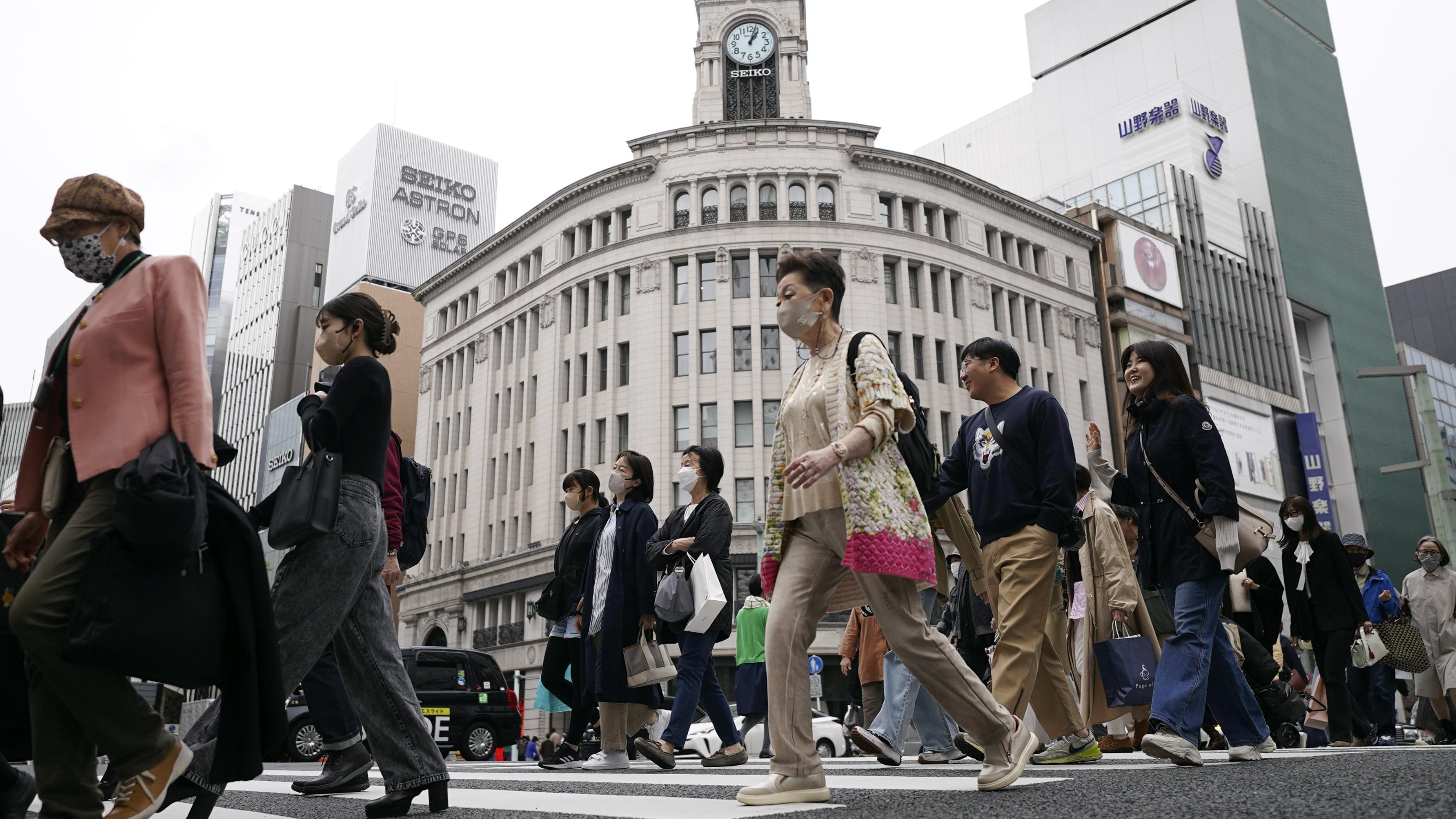 People walk across a pedestrian crossing in the Ginza shopping district on March 31, 2023, in Tokyo, Japan. (PHOTO / AP)
People walk across a pedestrian crossing in the Ginza shopping district on March 31, 2023, in Tokyo, Japan. (PHOTO / AP)
TOKYO - Japan's economy contracted in July-September, snapping two straight quarters of expansion on soft consumption and exports, complicating the central bank's efforts to gradually phase out its massive monetary stimulus amid rising inflation.
The data suggests stubbornly high inflation is taking a toll on household spending, and adding to the pain for manufacturers from slowing global demand.
"Given the absence of a growth engine, it wouldn't surprise me if the Japanese economy contracted again in the current quarter. The risk of Japan falling into recession cannot be ruled out," said Takeshi Minami, chief economist at Norinchukin Research Institute.
"The weak growth and the specter of slowing inflation could delay the BOJ's exit from negative interest rates," he said.
Gross domestic product in the world's third-largest economy contracted 2.1 percent in the third quarter, government data showed on Wednesday, a much larger decline that a median market forecast for an annualized 0.6 percent fall. It followed an expansion of 4.5 percent in the previous quarter.
The weak reading reflects lackluster consumption and capital expenditure, dashing policymakers' hopes for a post-pandemic rebound in domestic activity to offset weaker external demand from other countries
The weak reading reflects lackluster consumption and capital expenditure, dashing policymakers' hopes for a post-pandemic rebound in domestic activity to offset weaker external demand from other countries.
Consumption was flat in July-September after sliding 0.9 percent in the previous quarter, falling short of economists' median estimate for 0.2 percent growth.
READ MORE: Official: Japan on standby to deal with sharp yen moves
Capital expenditure fell 0.6 percent in the third quarter after declining 1.0 percent in April-June, confounding market forecasts for a 0.3 percent gain and casting doubt on the BOJ's view that robust corporate investment will underpin growth.
External demand shaved 0.1 of a percentage point off GDP in July-September, in line with expectations, as an increase in service imports offset rises in auto exports.
"The disappointing third-quarter reading serves as a sobering reminder that the country is not yet out of the woods," said Stefan Angrick, senior economist at Moody's Analytics.
He said better net exports, underpinned by car shipments and tourism, helped lift growth in the second quarter, belying the weakness in domestic demand.
"Now that the export recovery has run its course, that weakness is coming back to the fore," Angrick said.
Japan's economy had been making a delayed recovery from the pandemic as it re-opened borders and removed curbs on activity, leading in part to the strong April-June growth.
ALSO READ: Japan's payments clearing network restored after glitch
While the weak yen has given big exporters windfall profits, wages have not risen quickly enough to compensate households for the steady rise in inflation.
Inflation-adjusted real wages, a barometer of consumer purchasing power, fell 2.4 percent in September from a year earlier to mark the 18th straight month of declines.
Prime Minister Fumio Kishida has stepped up calls for firms to hike pay and announced a package of measures to cushion the economic blow from rising living costs, though analysts doubt the measures will have much effect in stimulating the economy.


